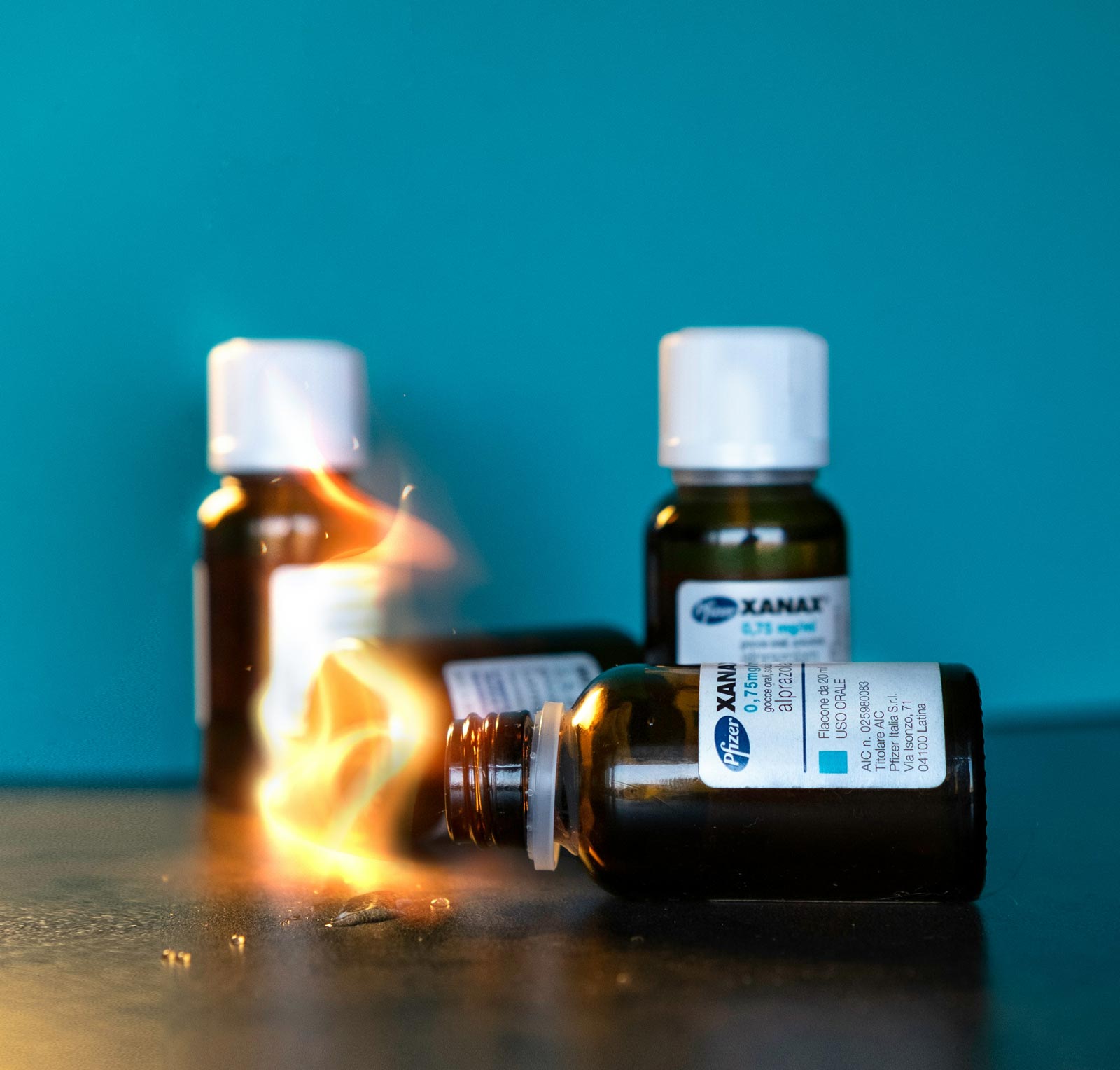Yes, some people have a greater risk for complications from melatonin, alcohol, or a combination:
- People on blood thinners: Alcohol affects your body’s ability to metabolize blood thinners like warfarin, which could cause serious bleeding.[4] Some research suggests that melatonin could have a similar effect.[5]
- People on anxiety medications: Consuming alcohol with anxiety medications like alprazolam can be dangerous.[6] The three substances together can cause dangerous levels of drowsiness or depressed breathing.
- People on additional sleep aids: Taking melatonin, alcohol, or a combination of both with other OTC sleep aids like valerian root or diphenhydramine can cause severe drowsiness that increases your risk of injuries or death.[7]
- Older adults: Adults over the age of 65 are at a higher risk of complications when combining alcohol and melatonin. Older people feel the effects of alcohol much more intensely than younger people, leading to a greater risk of interactions between the substances.[8]
- Women: Women have lower water content in their bodies, so they reach higher blood alcohol concentrations (BACs) than men – even when they consume the same amount of alcohol.[9] This can increase the risk of interactions with medications or supplements like melatonin.
When to Seek Medical Attention
Life-threatening side effects from melatonin are rare, but you should speak to your doctor before taking this supplement – especially if you drink alcohol regularly or struggle with alcohol use disorder.
However, alcohol can have serious risks on its own, which are compounded with melatonin. Consuming too much alcohol at one time can cause alcohol poisoning – or an alcohol overdose. The signs of an alcohol overdose include:
- Loss of consciousness
- Confusion
- Vomiting
- Seizures
- Slow or irregular breathing
- Cold or clammy skin
- Slowed heart rate
If you or someone you know may be experiencing alcohol poisoning, call 911 immediately.
Alcohol for Sleep Problems
Insomnia, a consistent issue of falling asleep, staying asleep, or having a restful sleep, can significantly disrupt your life. Chronic insomnia can cause you to feel tired during the day, unable to focus on work or other responsibilities, and may negatively impact your health over time.
Because of its sedative effects, alcohol may be used to help with sleep. However, while alcohol can make you feel drowsy, it’s bad for sleep. Alcohol has been shown to lower the amount of rapid eye movement (REM) sleep – the deep, restful stage – and can cause sleep disturbances throughout the night.[10] This means you may fall asleep, but the quality of your sleep is poor, and you may be tired the next day.
Drinking alcohol to go to sleep can slip into self-medicating insomnia, especially if you use alcohol to sleep and then rely on caffeine to stay awake when you feel groggy from poor-quality sleep the next day. This only harms your sleep cycle further and may cause you to become dependent on these substances for your day-to-day routine.
Get Help for Insomnia
If you have trouble sleeping and rely on a drink at bedtime, sleep aids, or both, help is available. Mixing these substances can have serious risks, not to mention that alcohol can affect how effective sleep aids like melatonin are at providing restful sleep.



